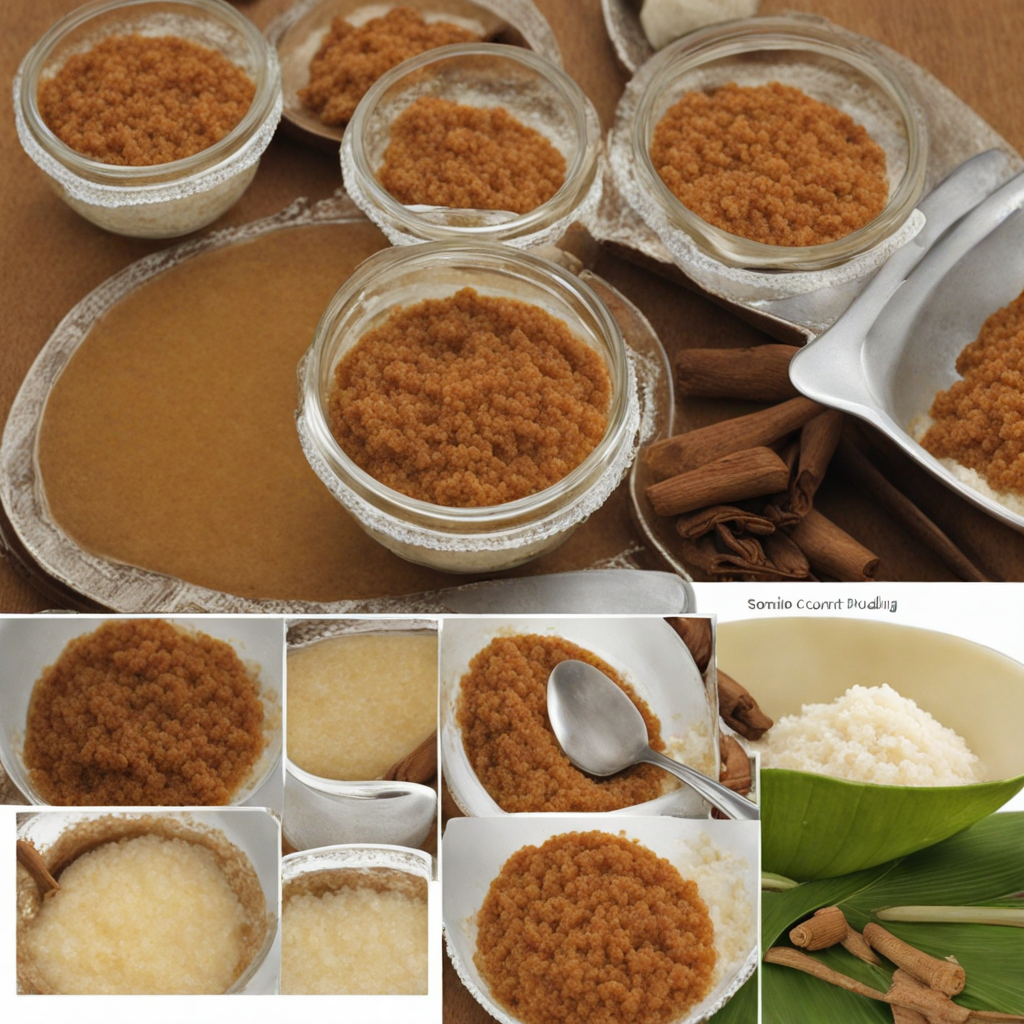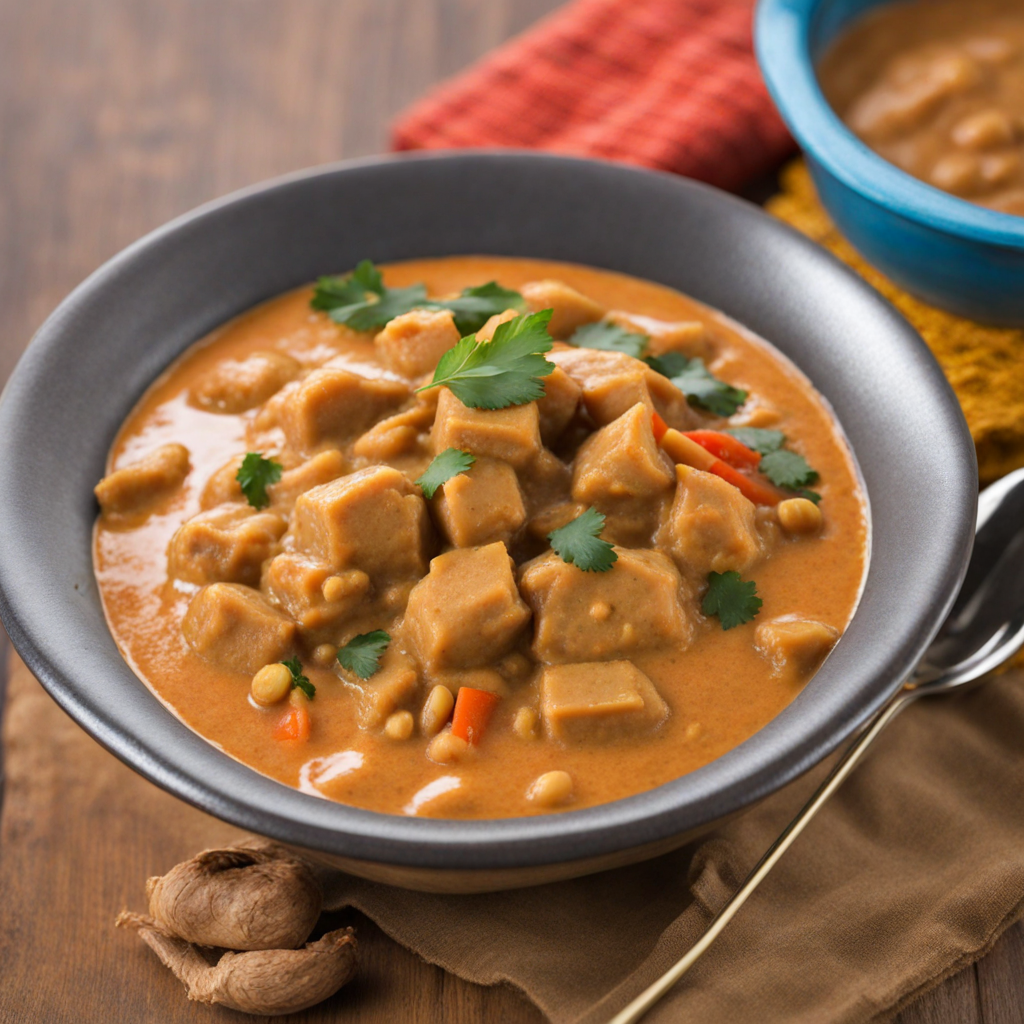Sombi
Sombi is a delightful Malian dish that showcases the rich culinary heritage of West Africa. This traditional food is made primarily from fermented dough, often derived from millet or sorghum, which is then shaped into small, round dumplings. The fermentation process lends Sombi a unique tangy flavor, making it a distinct addition to the palate. Served warm, these dumplings have a slightly chewy texture, which contrasts beautifully with the other components of the meal. The dish is commonly enjoyed with a variety of accompaniments, such as sauces, stews, or vegetables. One popular pairing includes a spicy tomato sauce infused with local spices and herbs, which enhances the natural flavor of the Sombi. The combination of Sombi with rich, savory sauces creates a harmonious balance that is both satisfying and comforting, perfect for sharing with family and friends. In addition to its delectable taste, Sombi also holds cultural significance in Mali, often being part of communal feasts and celebrations. The preparation of this dish is a labor of love, as the fermentation requires time and care, reflecting the deep-rooted culinary traditions of the region. Exploring Sombi is not just about tasting a new dish, but also about experiencing the warmth and hospitality of Malian culture, making it a truly memorable culinary adventure.
How It Became This Dish
Sombi: A Culinary Journey Through Mali’s Cultural Heritage Nestled in the heart of West Africa, Mali is a nation rich in history, culture, and culinary traditions. Among its many gastronomic treasures lies Sombi, a beloved dish that reflects the essence of Malian life—its flavors, rituals, and communal spirit. Sombi, a delightful pudding made primarily from millet or rice, sweetened with sugar and often flavored with vanilla or fruit, offers a window into the agricultural practices, social customs, and the very identity of the Malian people. Origins of Sombi The roots of Sombi can be traced back to the ancient civilizations that flourished in what is now Mali. This territory has been home to numerous ethnic groups, each contributing to the diverse culinary landscape. The Bambara, Dogon, and Tuareg peoples, among others, have long cultivated staple grains such as millet and rice, which are essential to their diets. Millet, in particular, has been a crucial crop for millennia, revered not only for its nutritional value but also for its adaptability to the arid climate of the Sahel region. Sombi itself is thought to have originated as a simple, nourishing dish that could be easily prepared and consumed by families, particularly during the agricultural harvest seasons. As millet and rice were harvested, the transformation of these grains into Sombi allowed communities to celebrate their bounty. Over time, the dish evolved to incorporate local flavors, with variations emerging across Mali's diverse regions. Cultural Significance Sombi holds a place of honor in Malian culture, serving as a symbol of hospitality, community, and tradition. It is often prepared for special occasions, such as weddings, religious festivals, and family gatherings. The act of making Sombi is communal; families come together to prepare the dish, fostering bonds and sharing stories. This communal approach is emblematic of the Malian way of life, where food acts as a unifying force. In many Malian households, Sombi is not merely a dessert but often serves as a breakfast or a side dish, showcasing its versatility. It can be served warm or cold, and its sweetness can be adjusted according to personal preference. Sombi is frequently enjoyed with a variety of accompaniments, such as fresh fruits, nuts, or spiced sauces, further enriching the dining experience. Moreover, Sombi is often presented in a ceremonial fashion, especially during festive gatherings. The preparation and serving of Sombi can involve traditional rituals that honor ancestors and express gratitude for the harvest. This practice underscores the deep connection between food and spirituality in Malian culture, as meals are seen as a means of connecting with the divine and with the community. Development Over Time As Mali underwent historical changes, so too did the dish of Sombi. The arrival of different cultures and influences—whether through trade, colonization, or migration—led to a gradual evolution of the recipe and its preparation methods. The trans-Saharan trade routes, which connected Mali to North Africa and beyond, facilitated the exchange of ingredients and culinary techniques. Spices and flavorings not native to the region, such as vanilla, began to find their way into Sombi recipes, enhancing its flavor profile. During the colonial era, Malians faced significant changes in their agricultural practices. The introduction of new farming techniques and crops altered local diets, but traditional dishes like Sombi endured, adapting to new circumstances. The resilience of Sombi is a testament to the Malian people's dedication to preserving their culinary heritage, even amidst external pressures. In contemporary Mali, Sombi has also begun to gain recognition beyond its borders. As the global interest in African cuisines grows, chefs and food enthusiasts are rediscovering traditional dishes, including Sombi. This resurgence has led to a renewed appreciation for the cultural significance of the dish, prompting discussions about its role in food sovereignty and sustainable agriculture. Sombi in Modern Context Today, Sombi is not only enjoyed in traditional settings but has also found its place in modern gastronomy. Chefs in Mali and abroad are experimenting with Sombi, incorporating modern culinary techniques while honoring its roots. Variations that include chocolate or coconut have emerged, broadening its appeal to new generations. Moreover, the resurgence of interest in traditional foods has encouraged Malian communities to engage in food preservation efforts. Local markets are increasingly promoting traditional ingredients, and educational initiatives are underway to teach younger generations about the importance of their culinary heritage. Sombi, as a dish that embodies the spirit of togetherness and celebration, plays a pivotal role in these educational efforts. In recent years, Sombi has also become a vehicle for culinary diplomacy. As chefs and food ambassadors showcase Malian cuisine on international platforms, Sombi serves as a cultural ambassador, inviting the world to taste and appreciate the rich flavors and traditions of Mali. Food festivals and cultural exchanges highlight Sombi, allowing people from diverse backgrounds to connect through shared culinary experiences. Conclusion Sombi is more than just a dish; it is a narrative woven into the fabric of Malian culture—an embodiment of history, community, and resilience. From its ancient origins rooted in the agricultural practices of Mali's diverse ethnic groups to its modern adaptations in the global culinary scene, Sombi continues to thrive as a symbol of unity and celebration. As Malians prepare and share this beloved pudding, they not only nourish their bodies but also honor their heritage, ensuring that the story of Sombi endures for generations to come. In exploring the history of Sombi, one discovers the profound connections between food, identity, and culture. Each bowl of Sombi serves as a reminder of the enduring power of culinary traditions and their ability to bring people together, transcending time and borders.
You may like
Discover local flavors from Mali







